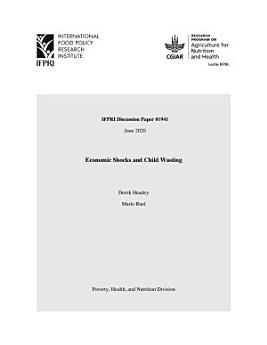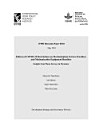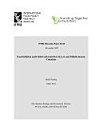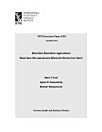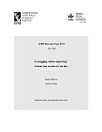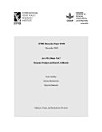Economic shocks and child wasting
Headey, Derek D. · Ruel, Marie T.
IFPRI Discussion Paper 1. књига · Intl Food Policy Res Inst
E-knjiga
37
Stranica
family_home
Ispunjava uslove
info
reportOcene i recenzije nisu verifikovane Saznajte više
O ovoj e-knjizi
In developing countries macroeconomic volatility is common, and severe negative economic shocks can substantially increase poverty and food insecurity. Less well understood are the implications of these contractions for child acute malnutrition (wasting), a major risk factor for under-5 mortality. This study explores the nutritional impacts of growth shocks over 1990-2018 by linking wasting outcomes collected for 1.256 million children from 52 countries to lagged annual changes in national income. Difference-in-difference estimates suggest that a 10% annual decline in national income increases moderate/severe (WHZ<-2) and severe wasting (WHZ<-3) by 14 and 22 percent. An exploration of possible mechanisms suggests negative economic shocks increase risks of diarrhea, fever, and maternal underweight prevalence, and reduce child dietary diversity. Applying these results to the predicted economic impacts of COVID-19 suggests that millions of pre-school children are at increased risk of wasting and wasting-related morbidity and mortality unless urgent preventative action is taken.
Ocenite ovu e-knjigu
Javite nam svoje mišljenje.
Informacije o čitanju
Pametni telefoni i tableti
Instalirajte aplikaciju Google Play knjige za Android i iPad/iPhone. Automatski se sinhronizuje sa nalogom i omogućava vam da čitate onlajn i oflajn gde god da se nalazite.
Laptopovi i računari
Možete da slušate audio-knjige kupljene na Google Play-u pomoću veb-pregledača na računaru.
E-čitači i drugi uređaji
Da biste čitali na uređajima koje koriste e-mastilo, kao što su Kobo e-čitači, treba da preuzmete fajl i prenesete ga na uređaj. Pratite detaljna uputstva iz centra za pomoć da biste preneli fajlove u podržane e-čitače.
